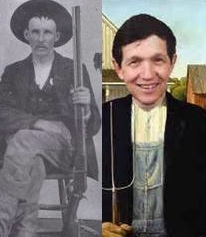A 21st century psychotherapist steps into a time machine and comes out in Atlanta in 1855. Having no other marketable skills, he hangs out a shingle and promises new remedies for mental illness. A well-dressed gentleman knocks on the door and inquires if the psychotherapist might come to his plantation to examine the slaves.
“Most of them are well satisfied with their position and work hard within their natural limitations,” says the gentleman. “But a few appear to suffer most severely with drapetomania, dipsomania and dyaesthesia aethiopica. Even after whippings, they continue to defy my rules, either by subterfuge or outright defiance. I do not understand their affliction, which is cause for much suffering among them and financial losses for myself.”
After looking up drapetomania (compulsive running away), dipsomania (compulsive drinking) and dyaesthesia aethiopica (compulsive avoidance of work) in the latest journals of negro behavior, the psychotherapist goes to the plantation and convinces the psychotic slaves to talk with him for 50 minutes each week.
“I think I know what the problem is,” says the psychotherapist after a few months of research. “Your slaves had unhappy childhoods because they come from dysfunctional families. Their parents were often absent and even when they were around, they didn’t appreciate their children for their true selves. In some sense, your slaves are living in the past, acting out childhood fear and anger that is deeply buried in the unconscious.”
“And what do you recommend as a remedy?” says the gentleman.
“The best psychology has to offer right now is continued brutalization, on the theory that their race is incapable of deeper insight,” says the psychotherapist. “I think the evidence indicates that re-traumatizing the already traumatized is ineffective for a small number of stubborn cases, as you have discovered. For the stubborn cases, I would suggest another form of therapy…”
If the 21st century psychotherapist was Freudian, he might now recommend years of talk therapy for the slaves until they had a clear understanding of their parents and siblings.
If the psychotherapist was Jungian, he might recommend dream journals and more creative outlets for the slaves so they could get insight from active imagination.










